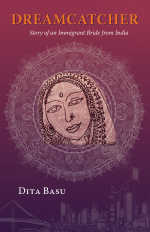Recent Posts
Why Translate
Why Translate
I was trying to translate a short story written by my favorite author Ashapurna Devi who charmed Jhumpa Lahiri the Pulitzer Prize-winning writer in English to choose her works as one of her research projects.
In the process I found that as a bilingual writer I have some added advantage over the monolingual ones. Through translations I could go deeper to understand the nuances of good storytelling, which is universal.
If language is a vehicle of articulation of our thoughts and emotions, then translating gives me another dimension to see the world and express it. It gives me a wider canvas and a richer texture to understand the world, the people and the different emotions. It gives me another way to appreciate diversity.
Of course there are hurdles. Especially when it is not my work that I am translating. Sometimes there are words that are almost untranslatable in one word in another language. If I elaborate on them in phrases or sentences they are ‘lost in translation’. For example, the word ‘aviman (অভিমান)’ in Bengali is not quite angry, or sad or hurt, it is a mix of all those emotions where a strong expected love is denied- a hollowness for that is the main essence.
I am sure each language has such words. Let’s take the word, ‘hygge’. It is not just the word ‘comfort’ or ‘cozy’ when I translate in English. You have to know the Scandinavian culture to understand the nuance of this word, -- which is a mood, a way of life mixed with a soft, cozy feeling of wellness and contentment.
Or, take the Welsh word,’hiraeth’ -a homesickness for a home to which you can’t return, a home that maybe never was, the nostalgia, the yearning, the grief for the lost place of your past.
When explained in so many words and phrases, I can relate to it very well. I had experienced that feeling, but is there a single word for that?
The desire to know another language deeply and diving into it is not an uncommon phenomenon.
James Joyce learned Norwegian to read Ibsen in original and as a young boy wrote Ibsen a fan letter on his 73 rd birthday.
Lydia Davis learned Norwegian also in order to read Dag Solstad. She knew French and German but not Norwegian, and her way of learning the new language was unique. Learning without using the dictionary was her style. She felt a dictionary may be detrimental — “crutches for those learning a new language...psychological hindrances to fully grasping vocabulary.”
Jhumpa Lahiri did precisely the opposite. In order to learn Italian, she used every tool she could find. Dictionaries, private tutors, befriending Italian writers, moving to Rome and finally stopping reading English, she wholeheartedly immersed herself in that culture and language. And now, after a decade, she mastered writing in Italian as well as translating stories from Italian to English.
Coming back to translating Ashapurna Devi’s story — here it is:
The Lost Address
Abanti came to Kolkata to arrange for her daughter’s wedding. Whoever heard that rolled their eyes, “Oh really!” —they said.
No, it was not for her coming to Kolkata, it was for the daughter’s wedding. People didn’t quite forget Abant’s wedding yet -- that luxurious party. Her elder sisters were all waiting with their daughters, who were much older. Abanti, like a young girl, shook her head with a beaming smile.
“Just because I am stuck at a faraway foreign place, can’t I have the wish to throw a lavish party?”
In reality, she was not childish at all, rather an expert homemaker. Like a skilled wedding planner, she was moving heaven and earth, trolling all over.
In that process, she bumped into her first love.
(If you wish to read the rest of this short story I can send it to you in the PDF form. Just drop me a line.

